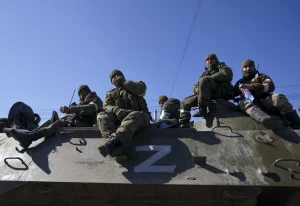
Supporting Ukraine is investment in security, not charity – EU top diplomat
Support for Ukraine is an investment in the European Union's own security, not charity. Supporting Kyiv is also in the interests of the United States
EU diplomacy chief Kaja Kallas stated this in an interview with Suspilne.
"We must view everything through the lens of security and protection. This also includes helping Ukraine. Supporting Ukraine is not charity but truly an investment in our own security. This is crucial when we talk about food security, cybersecurity, and even migration — all of these are also seen through the lens of security," she emphasized.
At the same time, Kallas stressed that defense spending remains the top priority, as "a war continues on European soil, in Ukraine, and Putin shows no signs of abandoning his goals."
According to the EU diplomacy chief, supporting Ukraine is also in the interests of the United States.
"If America is concerned about China, it should first be concerned about Russia. We see that Russia, Iran, North Korea, and China are working together. We also see what Putin is doing in other countries, significantly expanding his influence. So, if the U.S. wants to remain the strongest nation in the world, it will ultimately have to deal with Russia. The easiest way to do this is to support Ukraine in winning the war," she said.
Kallas believes Washington will continue aiding Kyiv because it enjoys bipartisan support in Congress.
"Let the new administration take office, and we’ll see. But in my previous role, I met with both Democrats and Republicans. There is broad support for helping Ukraine because this is a fight for freedom, something Americans understand very well. History shows that isolationism has never benefited the U.S. I hope they see the bigger picture, especially now, with North Korean soldiers being recruited to fight (for Russia against Ukraine, - ed.)," the diplomat added.
- This December, the European Union will provide Ukraine with an additional €4.2 billion to support its budget, and from January 2025 will allocate €1.5 billion per month from the proceeds of frozen Russian assets.
- News












































